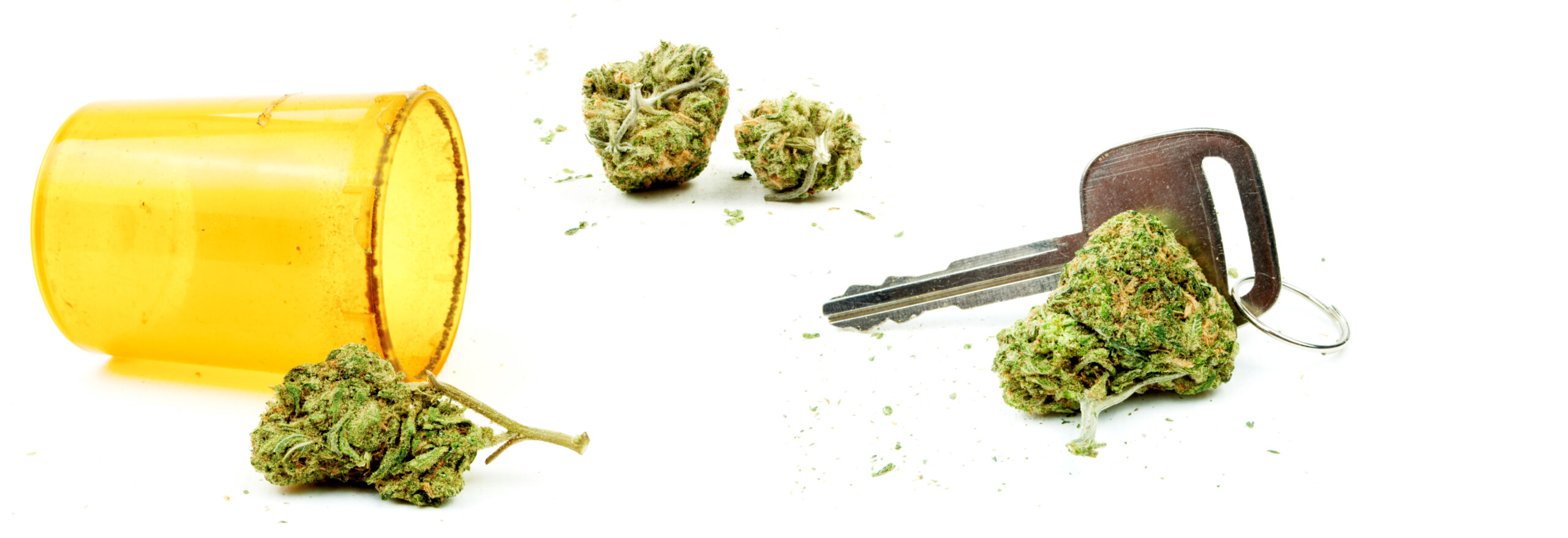Controlled Substance and Drug DWI in Texas
In Texas, a DWI charge is not limited to alcohol intoxication. It can also stem from the influence of drugs, whether illegal, prescription, or a combination thereof. If you’re facing such charges, seek help from an experienced Houston DWI defense attorney today.
What Is a Controlled Substance DWI?
Texas law defines intoxication as not having the normal use of mental or physical faculties by reason of the introduction of substances, including drugs, or having a blood alcohol concentration (BAC) of 0.08 or more. A controlled substance DWI charge applies when a driver is impaired by drugs, regardless of whether the substance is illegal, prescription, or over-the-counter.
Proving Controlled Substance (or Drugged) Intoxication
Unlike DWI cases involving alcohol, where a BAC of .08% or higher can conclusively prove intoxication, there is no similar objective standard for drug intoxication. The mere presence of drugs in a person’s system does not necessarily prove that they were impaired at the time of driving. This lack of a clear-cut impairment threshold makes it more challenging for prosecutors to prove controlled substance DWI cases beyond a reasonable doubt.
Law enforcement agencies often rely on the 12-step Drug Recognition Expert (DRE) Protocol to evaluate whether a driver is under the influence of drugs.
The DRE Protocol is a standardized process. It involves a series of observations and tests conducted by specially trained officers known as Drug Recognition Experts. These DRE officers assess the suspect’s appearance, behavior, and performance on standardized field sobriety tests (SFSTs) to determine if they are impaired by drugs.
The DRE Protocol includes the following 12 steps:
- Breath Alcohol Test
- Interview of the Arresting Officer
- Preliminary Examination and First Pulse
- Eye Examination
- Divided Attention Psychophysical Tests
- Vital Signs and Second Pulse
- Dark Room Examinations
- Examination for Muscle Tone
- Check for Injection Sites and Third Pulse
- Subject’s Statements and Other Observations
- Analysis and Opinions of the Evaluator
- Toxicological Examination
While the DRE Protocol provides a structured approach to assessing drug impairment, it has faced criticism for its subjectivity and potential for misinterpretation. The accuracy of the DRE Protocol depends heavily on the training and experience of the individual officer conducting the evaluation.
At the Westbrook Law Firm, we may challenge the qualifications of the DRE officer, the reliability of the protocol itself, and the subjectivity involved in interpreting your behavior and performance on the tests.
In addition to the DRE Protocol, law enforcement may also rely on drug testing to detect the presence of controlled substances in your system. Blood and urine tests are the most common methods used to screen for drugs in DWI cases. However, these tests have limitations that can make it difficult to prove intoxication at the time of driving.
One major limitation of drug testing is that it can detect drug metabolites long after the impairing effects of the substance have worn off. For example, marijuana metabolites can remain detectable in your system for days or even weeks after use, depending on factors such as the frequency and amount of consumption. This means that a positive drug test does not necessarily prove that you were impaired at the time of the alleged offense.
Another issue with drug testing is the potential for false positives. Certain medications, supplements, and even some foods can trigger false positive results on drug tests. This can lead to innocent people being wrongfully accused of driving under the influence of drugs.
Furthermore, the interpretation of drug test results can be complex and requires specialized knowledge. The presence and concentration of a drug in your system do not always correlate directly with the level of impairment. Factors such as individual tolerance, drug interactions, and the time elapsed between consumption and testing can all impact how a particular drug affects your ability to drive safely.
Given the limitations of the DRE Protocol and drug testing, prosecutors often rely on a combination of evidence to prove controlled substance DWI cases. This may include witness testimony, dashcam or bodycam footage, and the arresting officer’s observations of the driver’s behavior and physical symptoms. However, the lack of a clear impairment standard for drugs makes these cases more challenging to prosecute than alcohol-related DWI offenses. This is why you need an experienced Texas DWI Attorney to defend you and raise the numerous doubts associated this type of offense.
Penalties for Controlled Substance DWI
The penalties for a controlled substance DWI in Texas are generally the same as those for an alcohol-related DWI. However, additional charges related to drug possession may apply if illegal substances are found in your vehicle.
First Offense DWI
- Class B misdemeanor
- Up to 180 days in jail
- Fine up to $2,000
- License suspension up to 1 year
Second Offense DWI
- Class A misdemeanor
- Up to 1 year in jail
- Fine up to $4,000
- License suspension up to 2 years
Third or Subsequent Offense
- Third-degree felony
- 2-10 years in prison
- Fine up to $10,000
- License suspension for 2 years
Aggravating factors, such as having a child passenger or causing injury or death, can elevate the charges and penalties.
Defending Against Controlled Substance DWI Charges
At the Westbrook Law Firm, PLLC, we use several strategies to challenge controlled substance DWI charges:
Challenging the Traffic Stop
If the initial traffic stop lacked reasonable suspicion, any evidence obtained as a result of the stop may be deemed inadmissible in court. We will examine the circumstances surrounding the stop to determine if the officer had a valid reason to pull you over.
Disputing the Search
Searches conducted during a DWI investigation must be based on probable cause or the driver’s consent. If a search was performed illegally, the evidence obtained from that search can be suppressed. We will scrutinize the search process to ensure that your Fourth Amendment rights were not violated.
Contesting Drug Test Results
Drug tests, such as blood or urine tests, can be challenged based on factors like sample handling, equipment calibration, and the qualifications of the person administering the test. We may also argue that the presence of drug metabolites does not necessarily prove impairment at the time of the alleged offense.
Presenting Alternative Explanations
In some cases, medical conditions or other factors may explain the signs of impairment observed by law enforcement. For example, fatigue, allergies, or neurological conditions can cause symptoms that mimic drug intoxication. By presenting alternative explanations, we can raise reasonable doubt about the cause of the alleged impairment.
Examining Procedural Errors
Law enforcement officers must follow strict protocols when making a DWI arrest and collecting evidence. Violations of these protocols or your constitutional rights can provide grounds for dismissal of the charges. We will closely examine the arrest process to identify any procedural errors that may work in your favor.
Contact a Houston DWI Defense Attorney
If you find yourself facing a controlled substance DWI charge, remember that you are innocent until proven guilty. These cases are filled with legal and technical challenges. It’s best to hire a skilled Houston DWI defense attorney.
Don’t go through this challenging time alone. Contact Nicholas R. Westbrook at 281-888-5581 to secure the Houston DWI Defense Attorney you need and deserve.





















